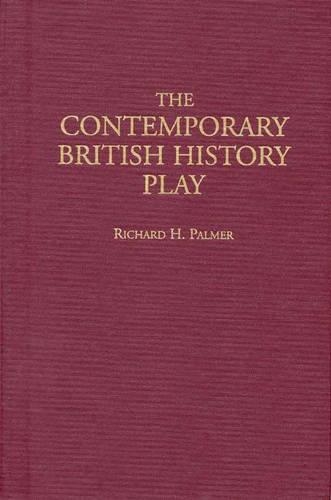
The Contemporary British History Play
(Hardback)
Publishing Details
The Contemporary British History Play
By (Author) Richard Hudson Palmer
Bloomsbury Publishing PLC
Praeger Publishers Inc
18th June 1998
United States
Classifications
Tertiary Education
Non Fiction
Literary studies: plays and playwrights
Literary studies: c 1900 to c 2000
822.91409358
Physical Properties
Hardback
272
Width 156mm, Height 235mm
539g
Description
This volume investigates how recent British history plays reflect the methods and values of New History, in contrast to traditional biographical dramas that depict the lives of great men of the past. More than 50 British playwrights are discussed, including John Osborne, John Arden, Edward Bond, Robert Bolt, Pam Gems, Howard Brenton, Caryl Churchill, Howard Barker and Peter Shaffer. Historical drama consistently displays the sense of history prevalent when it was written: a 17th century quest for precedent and analogy; the affirmation of cosmic order in the 18th century; the romantic search for manifestations of spiritual purpose; in Victorians times, a demonstration that humans control events; and the early 20th century promise, emulating science, to present the facts objectively. Contemporary British history plays, however, demonstrate different agendas for history itself. Marxist plays illustrate an historical dialect leading to the emergence of Communism. Oppositional history takes the point of view of the disenfranchised, the defeated or the oppressed. Social histories refocus attention away from movers and shakers onto groups of small players. Feminist historians expose the biases of a male dominated hegemony and confront the role of gender in history. Deconstructionists debunk our confidence in historical metanarratives. Postmodernism uses anachronism and stylistic eclecticism to emphasize parallels of different historical periods or to relates historically defined metaphors and rituals to modern experience. Both playwrights and critics confront the implications of the idea that history is constructed and not simply found, and new approaches to history demand innovations in the staging and structuring of plays.
Reviews
The Contemporary British History Play is an efficient and thoughtful treatment of the manu uses post-war playwrights have made of history. Palmer's solution to the problem of defining the genre is quite satisfying; it is good to get beyond that silly debate and on to more substantial matters. Finally, since even seasoned scholars are likely to encounter playwrights new to them here, perhaps some less visible writers will receive critical attention.-Modern Drama
"The Contemporary British History Play is an efficient and thoughtful treatment of the manu uses post-war playwrights have made of history. Palmer's solution to the problem of defining the genre is quite satisfying; it is good to get beyond that silly debate and on to more substantial matters. Finally, since even seasoned scholars are likely to encounter playwrights new to them here, perhaps some less visible writers will receive critical attention."-Modern Drama
Author Bio
RICHARD H. PALMER is Professor of Theatre at the College of William and Mary, where he balances anf interest in theatre history and literature with practical work as a stage director and designer. His specialty in theatre aesthetics encompasses topics ranging from stage lighting to dramatic theory. His previous books include The Lightening Art (1994), Tragedy and Tragic Theory (Greenwood, 1992), and The Critics' Canon (Greenwood, 1988).
